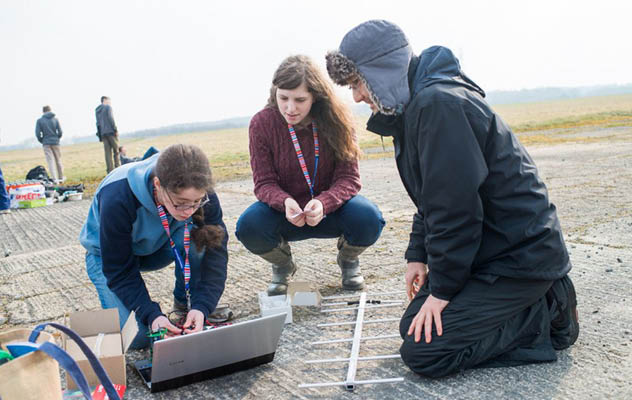
Whisper it quietly – I’m sure many in engineering circles won’t like me saying this – but I was delighted to spot an article in last week’s London’s Evening Standard highlighting the innovative approach taken by the Engineering Department at University College London in attracting girls to take up Civil Engineering degrees.
The best thing is it doesn’t involve any special treatment, concessions or expecting 15 year olds to take a sudden interest in labour market information. All you need, it seems, is a simple realisation that – if you are struggling to attract the people you want (in this case, more girls) – you have to actually make it easy for them to get involved and not constantly be pulling up the very ladder you want them to climb.
Taking a fresh approach
In this case, UCL had the foresight to do this by showing flexibility in their entry requirements. In fact, having ‘done the maths’ that relatively speaking so few girls pursue physics beyond 16, UCL Civ Eng department worked out as far back as 2006 that if they wanted to get anything like a reasonable proportion of girls on their courses, they needed a much more flexible approach. So they specifically targeted bright female students, achieving well in a range of subjects but who – for whatever reason – had not necessarily opted for the ‘traditional’ engineering subjects when selecting their A level options.
What happened? Well, according to the Evening Standard report, it’s been a success. The percentage of female students on the UCL degree has increased from 21% to 29% since they changed their approach. Students without physics and mathematics account for around 10% of the undergraduate intake, but – according to UCL – achieve just as well as those with the more traditional entry requirements. Sure, they have additional mathematics classes, particularly in the early stages of their degree, but their motivation to learn pulls them through.
Why is this newsworthy at all?
As pleased as I am to see the progress that has been made at UCL, the sad thing for me is that this approach is newsworthy at all. When I went to university a while back (ok – quite a long time ago now), I was welcomed onto a chemical engineering degree course without physics and without fuss. Those in charge of admissions were able to see my potential, not just whether I had a tick list of qualifications. So why aren’t more engineering admissions tutors doing this now, particularly when it comes to the sticky issue of encouraging more girls?
I am reminded of a frustrating evening, a long time ago now, at an event discussing STEM skills and education, also attended by a senior official at a top London University (not UCL!). Predictably, the issue of encouraging more girls into engineering came up – at which point I suggested that, perhaps, one route was precisely that which UCL has since taken up. That is, being flexible in entry requirements so that young people who were either poorly advised at school, unsure of what they wanted to do, or unable for whatever reason to pursue the ‘preferred subjects’, were not cutting off their options forever. My argument was that I would rather have someone who didn’t have the ‘correct qualifications’ but had the motivation and drive, than someone who was simply working their way through a ‘defined route’. The senior official told me in no uncertain terms what a stupid idea this would be, harming standards and doing nothing to assist girls. With attitudes like that, I’m somehow not surprised to find that the university in question still struggles to attract many females to their engineering degrees.
So what is a girl to do?
Obviously, all things being equal, it is probably still sensible for would-be engineers to pursue the traditional subjects of mathematics and physics beyond 16 – certainly, physics A level would have made significant parts of my degree easier to cope with, and I was glad to have the mathematics already in hand. At the same time, I am a great believer that – if engineering is a ‘shortage subject’ – we need to consider a more flexible approach. So let’s get Admission Tutors and others to learn from UCL’s experience, and put your trust in the girls (or boys) who have the potential to help meet the big challenges we face.
